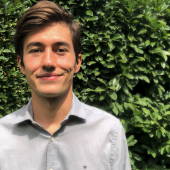This website uses Google Tags and Google Analytics to collect anonymised information such as the number of visitors to the site, and the most popular pages. Keeping these cookies enabled helps the OII improve our website.
Enabling this option will allow cookies from:
- Google Analytics - tracking visits to the ox.ac.uk and oii.ox.ac.uk domains
These cookies will remain on your website for 365 days, but you can edit your cookie preferences at any time via the "Cookie Settings" button in the website footer.
Please enable Strictly Necessary Cookies first so that we can save your preferences!







